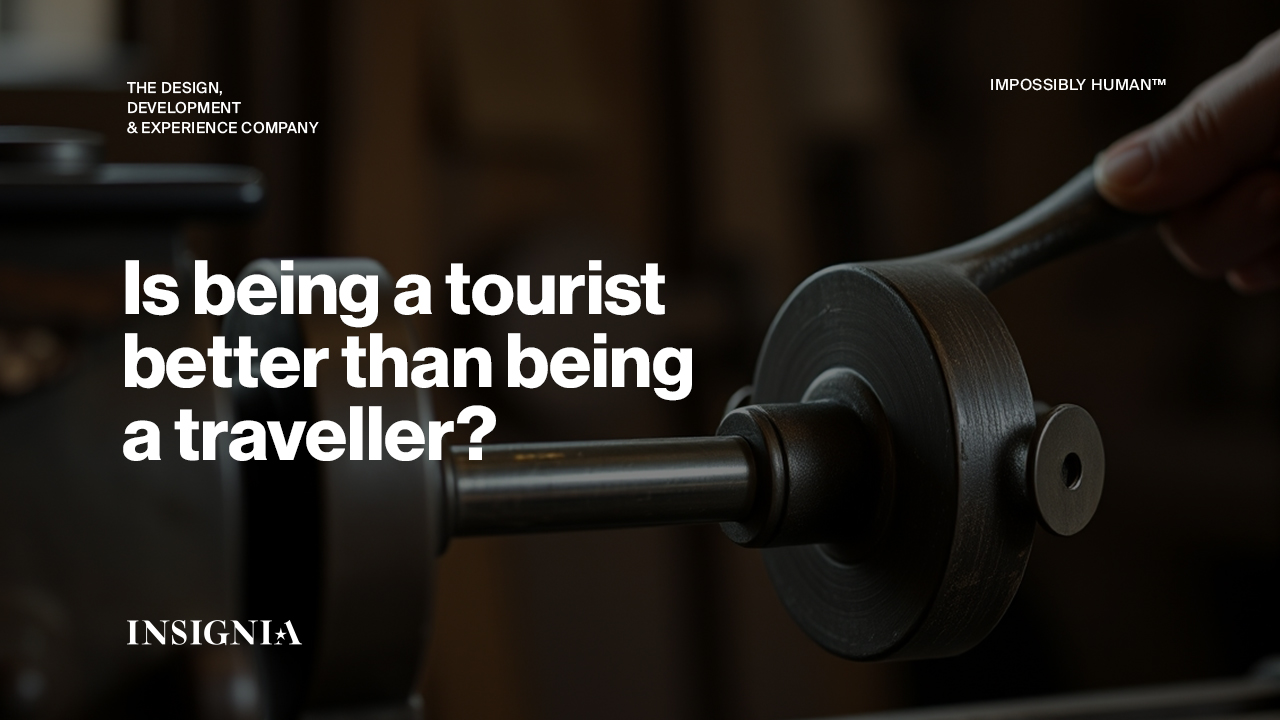To be a ‘traveller’ or ‘explorer’, we imagine, is to be daring, curious, and perhaps even noble: someone who seeks to uncover the very essence of a destination. But ‘tourist’? Now that word evokes quite a different image: garish T-shirts, oversized hats, and a sea of selfie sticks bobbing about as visitors trudge through yet another overcrowded landmark as they follow a well-worn path of clichés.
But perhaps it’s time we reconsider this label, reclaim the word ‘tourist’, and give it the respect it deserves. To do so, we must dig a little deeper into the roots of the word itself. Curiously enough, ‘tourism’ and ‘tourist’ both come from the Greek word ‘tornos’, which means ‘lathe’.
A lathe, for the uninitiated, is a tool that spins a piece of material – wood, metal, or otherwise – around a central axis. As the object rotates, a steady hand applies different tools to cut, shape, and smooth it into something new. The lathe, in essence, transforms a raw piece of material into something crafted, refined, and often symmetrical. Think of the beautifully turned legs of a stool or the elegant spindles on a banister. These are the results of a lathe’s ability to transform what was once a simple piece of wood into something purposeful and, dare I say, beautiful.
What does this have to do with tourism?
Understanding the etymology of the word ‘tourist’ allows us to look beyond the shallow interpretations of box-ticking and bus tours. If we trace the word back to its roots, tourism should be viewed as an act of transformation: Just as a lathe shapes and changes raw material, so too should tourism shape and transform us. It’s not just about taking in sights or collecting photos; it’s about emerging from the experience somehow altered.
Moreover, the objects crafted on a lathe are rarely standalone items. A stool leg, for example, is one part of a larger whole. It has purpose and is an essential component of a greater structure. Likewise, tourism isn’t an isolated experience. It should contribute to something larger within us, becoming part of our greater understanding, our broader perspective. So, in this sense, tourism isn’t just a personal transformation, but a constructive one. We build upon who we are, adding layers of empathy, knowledge, and experience.
Therefore, to truly reclaim the word ‘tourist’, we must ask ourselves this: Did our travels transform us in some meaningful way? Did they, like the lathe, shape us into something more than what we were before? And, crucially, was the experience constructive? It’s not just about tasting Bolognese in Bologna and thinking, “Well, I’ll never look at spaghetti the same way again.” We’re talking about a deeper alchemy, one that alters our very being, like gazing upon a Red Sea coral ecosystem so dazzlingly alive that it forces us to reassess our relationship with nature, stirring within us a profound empathy for the world around us.
If we apply our ‘transformative’ and ‘meaningful’ criteria, the word ‘tourist’ becomes something far grander than the shallow stereotype it’s come to represent. It no longer pigeonholes us as casual observers, uninterested in deeper engagement with a destination. Instead, it exalts us. It holds our travel experiences to the highest of standards, asking that they not only change us but that they do so in ways that constructively build upon our humanity.
So, henceforth, let us not shy away from being called ‘tourists’. Rather, let us embrace the title with pride, remembering that tourism, in its truest form, is both transformative and constructive.
The next time someone calls you a tourist, smile and wear the badge with honour.
Insignia Worldwide crafts new realities at the intersections of strategy and storytelling, by challenging what is humanly possible and creating what is Impossibly Human.TM
